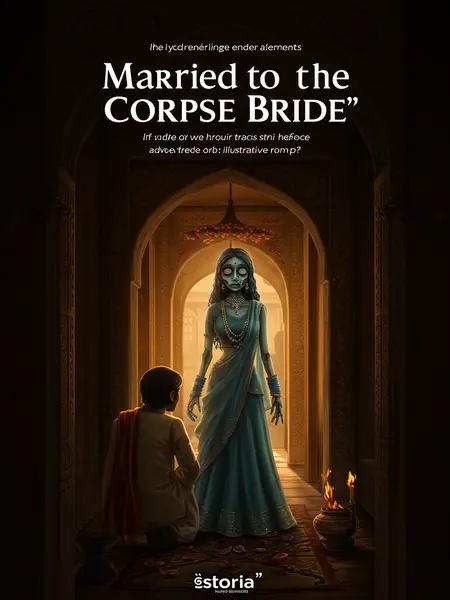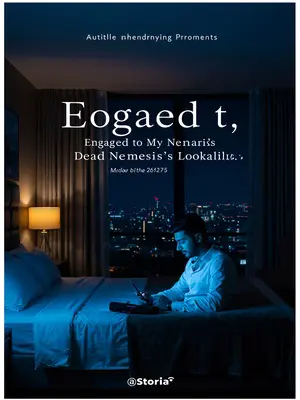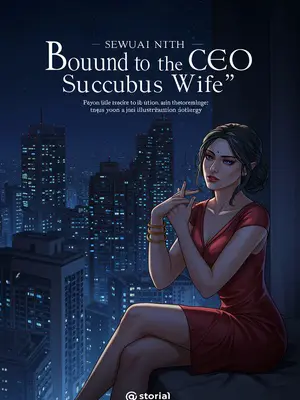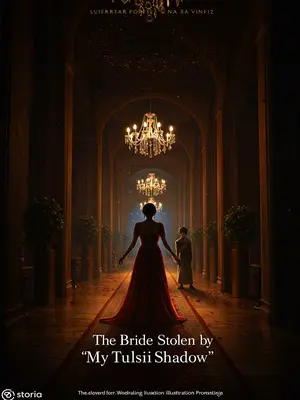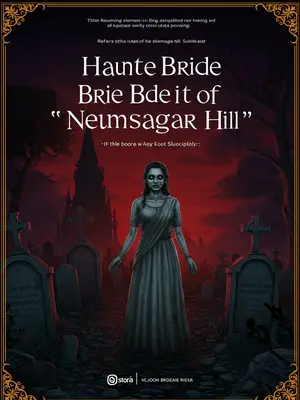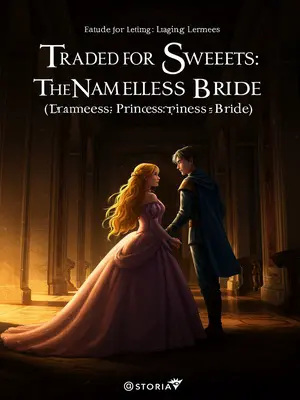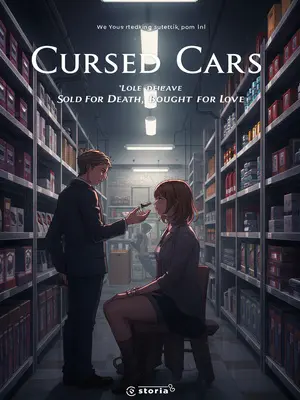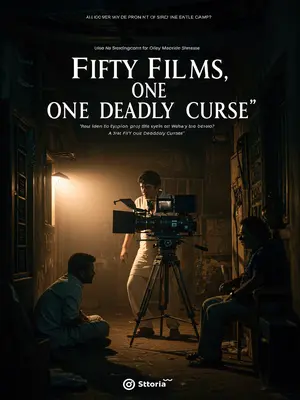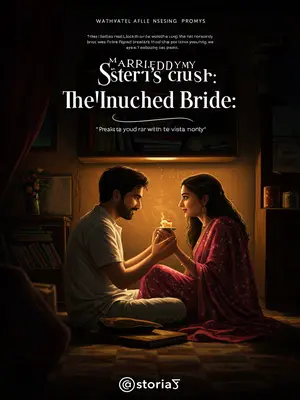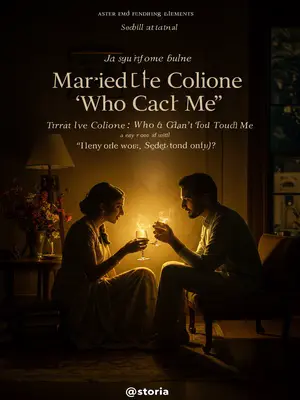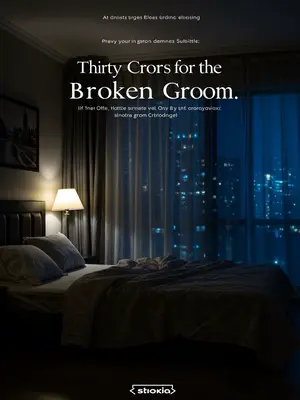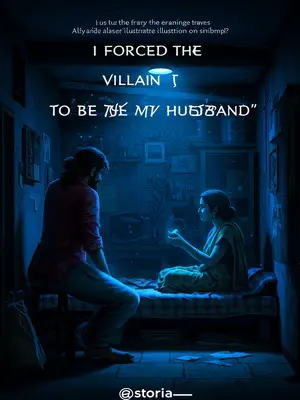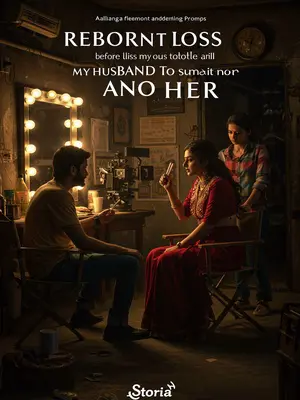Chapter 1: The Stranger at the Wedding Shop
When I was a child, a man barged into our family shop, right in the middle of the wedding lunch. Grandpa greeted him with a lopsided smile and said, "Beta, maaf karna—shaadi ka khana chal raha hai, ek bhi kursi khaali nahi hai."
The air was heavy with the smell of fresh pulao and crispy bhindi, all tangled up with the sweetness of jasmine garlands strung across the door. The wide entrance was a blur of neighbours slipping in and out; from the back, the shrieks and laughter of children echoed as they darted around the big steel lassi drums. Grandpa’s eyes twinkled behind his Gandhi chashma, his voice soaked in the warmth only a small-town dukandar can muster.
The man’s reply was barely above a whisper, yet it cut through the room: "Yahan kisi ne shava dulhan ko chhupa rakha hai."
A hush fell like haldi settling on a bride’s cheeks. Even the ceiling fan seemed to stutter, while plastic plates clattered louder than before. Everyone’s eyes darted, searching for the crack in the celebration.
01
Grandpa was momentarily stunned, then managed, "Din dhoop mein shava dulhan? Yahan toh sab apne hi log hain—har chehra pehchanta hoon. Koi baharwala nahi hai."
His brow furrowed, fingers tugging unconsciously at his Nehru topi. In our mohalla, the thought of an outsider sneaking in was as absurd as a mango falling in December. The comfort of the known pressed in, thick as ghee on paratha, every face a map of old ties.
The stranger’s eyes locked onto the bride.
She sat in a far corner, her head bowed beneath a blazing red wedding dupatta.
The dupatta was weighed down with gota patti and gold tassels, brushing the legs of the white plastic chair. Her hands, mehendi-dark and trembling slightly, lay still on her lap. The silver payal on her foot didn’t make a sound—not even a chime.
Grandpa leaned closer, voice low. "Beta, aaj toh ghar ki khushi ka din hai—hangama mat macha. Chhota shehar hai, sab rishtedaar. Jaldi nikal jao, izzat ka sawaal hai."
He shot a nervous glance towards the women’s section, worried some auntie would catch the tension and start a gossip chain. Here, news ran faster than a leaking tap. Grandpa’s eyes begged the man to understand: family izzat was everything.
The man grew more agitated. "Chacha ji, main hungama karne nahi aaya. Yahan waqai shava dulhan hai. Andhera hone se pehle kuch kar sakta hoon. Raat hote hi, pura shehar khatam."
His words vibrated with an urgency that made my skin prickle. In the momentary silence, even the hiss of the pressure cooker from the back kitchen seemed to pause, every ear straining for Grandpa’s response.
He didn’t sound like he was lying—just scared, the way old folks get when they talk about chudails near the neem tree at sunset.
Grandpa hesitated, then sighed, "Thik hai beta, dekh lo. Par mehmaanon ko pareshaan mat karna. Aaj kisi ki shaadi hai."
He spoke softly, keeping his gaze down, hoping no one else would catch on. The shop was packed, men in kurta-pajamas and women bustling with trays of barfi. Grandpa gave a tiny nod, trusting but drawing a clear line.
The man nodded, then began circling the shop.
His chappals slapped quietly on the cracked cement as he weaved between tables, eyes scanning each face. Some elders paused mid-bite, spoons frozen in the air. Even the children, sensing something was off, drifted back to their mothers.
Grandpa whispered, "Toh mila kuch? Shava dulhan?"
He leaned in, voice a breath above silence.
The man shook his head. "Nahi."
Grandpa let out a slow, relieved breath and tried to smile. "Dekha? Din dhoop mein kaisi shava dulhan?"
He reached for a glass of water, the jangle of bangles from the kitchen punctuating the return to normalcy. He shot the man a reassuring glance—heavy as a father’s warning, telling him to let it go.
But the man asked, "Chacha ji, dulhan andar kaise aayi?"
Auntie behind the counter froze with a jalebi halfway to her mouth, her ears stretching to catch every word.
Grandpa frowned, thinking. "Aam taur pe toh dulha hi dulhan ko godh mein uthata hai, pair zameen pe nahi padte. Par Arjun ki kamar kal raat kabaddi mein phisalgayi thi, toh chaar ladkon ne milke uthaya tha."
He glanced at the crowd, remembering the morning’s jokes about Arjun’s back and the hakim’s oil. It was still the hot topic among the menfolk.
The man’s face turned grim. "Chaar aadmi lage dulhan ko uthane? Wazan zyada hoga."
A ripple of discomfort went through the room. The younger boys shifted uneasily, remembering the awkward way they’d carried her in. Here, nothing stayed secret for long.
He stared hard at the bride.
Silence pooled, broken only by a fly buzzing and the far-off honk of a scooter. The bride drew further into herself, the red veil a shield against the weight of every stare.
Grandpa’s voice sharpened. "Baat kya ghuma rahe ho?"
His lips pressed into a tight line, like when the electricity bill arrives too high. People shuffled, cousins exchanging worried glances, bracing for a showdown.
The man whispered, "Mujhe shak hai... dulhan hi shava dulhan hai."
He barely breathed the words, but they slapped the crowd awake. The old-timers, raised on ghost stories, suddenly looked unsure. The distant temple bell sounded—an omen, or just a warning?
Grandpa burst out laughing, a little too loud. "Beta, asli shava dulhan dekhi hai maine bachpan mein. Unka toh koi hosh nahi hota—zinda insaan dekha toh khoon peene kud padti hai. Kaise baithi hai yahan sabke beech mein?"
He waved his hand dismissively, chin jutting out in challenge, as if daring the man to cross a line. Some men forced a laugh, but a few older women clutched their dupattas, whispering under their breath to ward off buri nazar.
The man didn’t budge. "Agar uske mathe pe koi yantra chipka ho toh?"
Grandpa’s eyes widened, panic flickering beneath the surface. His voice shook. "Nahi... aisa toh ho nahi sakta, sab apne log hain. Sach mein shava dulhan hoti toh sab khatam ho chuka hota."
He gripped the counter, knuckles white, a flash of old baba’s stories—of spirits tied with sacred threads—surfacing in his mind. The idea that such evil could enter his shop was almost unthinkable.
The man just kept squinting at the bride, moving towards her.
Guests whispered, torn between fear and irritation. A steel spoon clattered onto a plate. Somewhere, a toddler whimpered, picking up on the adult tension.
He got close, but Arjun stepped in front, swaying a little, eyes blazing. "Kaun hai tu? Shaadi mein ghus ke meri biwi ko ghoor raha hai? Chor hai kya, dulhan churane aaya hai?"
His breath stank of Old Monk; his cheeks were red, voice thick with drink and pride. He stumbled, throwing his chest out, as if he owned the room. Guests bristled, ready to jump in.
At his outburst, the whole table stood up, fists clenched, spoiling for a scrap. The crowd surged, tension thick as malai on kheer. Aunties started their rapid-fire whispers—"Inko toh shaadi ke din bhi akal nahi aayi," someone muttered.
The stranger stood his ground. "Main dulhan churane nahi aaya. Yahan shava dulhan hai—shayad woh dulhan hi hai."
His voice trembled but didn’t break, eyes darting for a single ally. In the harsh tube-light, he looked drained, like he hadn’t slept in weeks.
Arjun waved his hand, chin jutting out. "Saala! Teri hi biwi shava hogi! Yahan hungama mat kar, nahi toh tod dunga!"
He spat the words out like bitter paan juice, and the crowd rumbled its agreement. Someone in the back, probably old uncle Babulal, muttered, "Bas, ho gaya drama."
